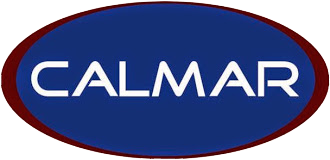Frequently Asked Questions
Why insulate your house?
In the average American home, heating and cooling accounts for 50 to 70% of the energy used. Lack of insulation and air leakage are the leading cause of energy wasted in most homes. Insulation your home will save you money, make your house more comfortable by helping to maintain a uniform temperature throughout the house, and will make your home warmer in the winter and cooler in the summer. Energy conserved is money saved, and saving energy will be even more important as utility rates go up.
What does R-Value mean?
R-value is a measure of resistance to heat flow through a given thickness of material. Insulation with a higher R-value will have a greater insulating effectiveness. The R-value of thermal insulation depends on the type of material, its thickness, and its density.
When is the best time to insulate my investment?
Do it right the first time! It is always economical to install the recommended amount of insulation during the initial construction rather than going back and having to adding insulation later. Many of the insulation locations are enclosed during the construction process and it is difficult to add insulation to those areas at a later time.
Can you increase energy savings in an existing home?
Yes. Adding more insulation where you already have some insulation, such as an attic, will save energy. Also, you can save even greater amounts of energy if you install insulation into places in your home that have never been insulated. This might include non-insulated floors over a garage or crawlspace, walls that separates a room from the attic, or walls between non-insulated garages.
How long has foam insulation been around?
Foam Insulation has been used as a specialty product in the building industry for over 50 years. It is widely known to be safer, more effective alternative to other insulators (e.g. fiberglass insulation).
How is spray foam insulation installed?
The foam insulation is sprayed, via special equipment, into wall cavities and expands to fill all the nooks and crannies in a wall cavity. Excess foam is scraped off the studs to form a uniform wall cavity. Spray foam insulation makes it easy to completely fill wall cavities with insulation and to perform air sealing in the same step.
What are some of the benefits of closed cell spray foam insulation?
Closed cell spray foam has the highest R-value. It seals to reduce air infiltration, it is highly water-resistant, and it does not store water. The closed cell foam insulation also makes a home more storm-resistant. Closed cell spray foam is also a great product for hard-to-insulate areas such as living spaces over garages, cantilevered floors over non-conditioned spaces, and knee walls, as well as band joist areas.
Will insulation affect the sizing of my air conditioning unit?
Yes. By using efficient insulation, heating and cooling equipment can be properly sized. Right-sizing HVAC equipment will likely save money during construction as well as every month on utility bills.
PROUDLY SERVING
New Orleans | Metairie | Baton Rouge | Lafayette | Mandeville | Covington
Mobile | Hammond | Houma | Slidell | Bay St. Louis | Biloxi | Gulfport
Mobile | Hammond | Houma | Slidell | Bay St. Louis | Biloxi | Gulfport

